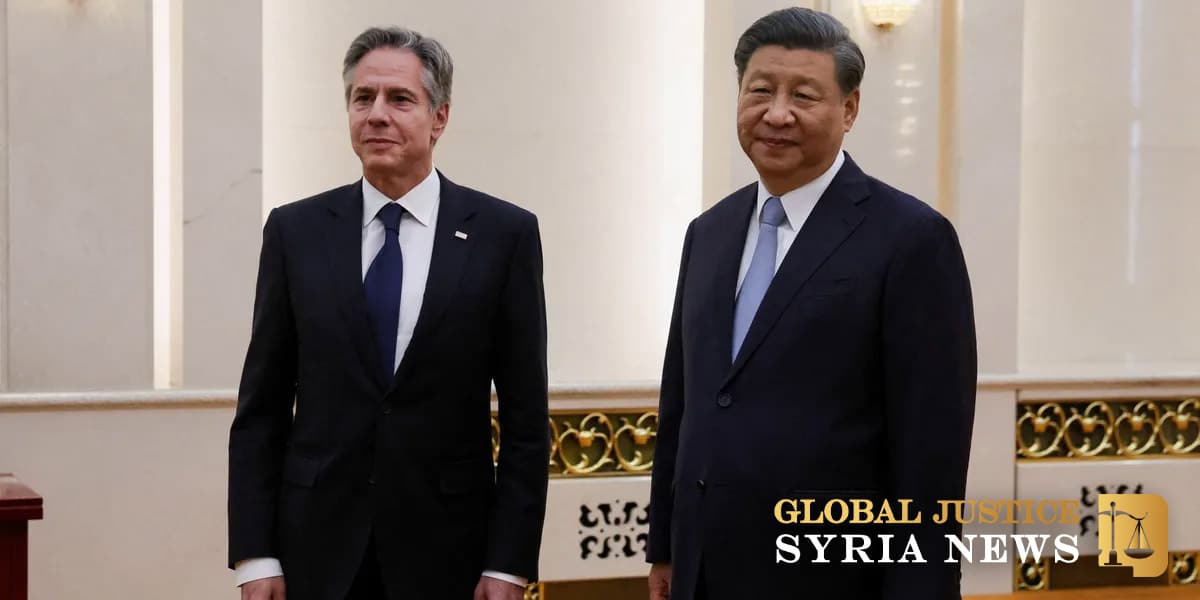WASHINGTON — The United States and South Korea have called on China to use its influence over Russia and North Korea to prevent escalation after recent reports revealed that Pyongyang has dispatched thousands of troops to Russia. This development, aimed at bolstering Moscow’s military efforts in Ukraine, has heightened tensions, with China notably silent on the matter.
According to a U.S. State Department official, three top U.S. diplomats met with China’s ambassador in Washington earlier this week to convey their concerns, underscoring China’s unique position to influence North Korea’s actions. During the meeting, U.S. Secretary of State Antony Blinken urged China to curb Pyongyang’s support for Russia, emphasizing that this is a “demand signal not just from us, but from countries around the world.”
China, while remaining publicly neutral, has consistently advocated for peace talks in Ukraine, with Liu Pengyu, a spokesman for the Chinese Embassy in Washington, reiterating that China’s stance on the Ukraine conflict remains focused on a “political settlement.” Beijing has yet to respond directly to reports of North Korean troops in Russia, a silence that analysts suggest may signal disapproval of the alliance.
China’s Complex Position on Russia and North Korea’s Military Alliance
China’s longstanding partnerships with Russia and North Korea present a delicate situation. While Beijing has strengthened its “no limits” partnership with Moscow, it has traditionally avoided endorsing military actions that could destabilize the region, particularly on the Korean Peninsula. Shi Yinhong, an expert on international relations at Renmin University, noted that Beijing is “aware of the complexity and danger” posed by closer military ties between Russia and North Korea.
This silence from China, which Dennis Wilder, senior fellow at Georgetown University’s Initiative for U.S.-China Dialogue, described as “staggering,” has left experts speculating on Beijing’s stance. According to Wilder, Chinese President Xi Jinping might be avoiding public comments to maintain a balancing act between supporting Russia and not provoking the West, as China grapples with its own economic challenges.
Despite China’s silence, Wilder noted that President Xi shares a close relationship with Russian President Vladimir Putin, making it difficult for Xi to see Putin face potential setbacks. At a recent panel hosted by the Center for Strategic and International Studies, Wilder pointed out that while Xi supports Putin, he must also weigh potential backlash from Europe and the U.S. if China is perceived as supporting this expanded military collaboration.
Concerns Over Regional Stability
The emerging Russia-North Korea alliance may complicate China’s goal for regional stability. Victor Cha, a Korean expert at the Center for Strategic and International Studies, suggested that China may feel “there’s probably a combination of a little bit of exasperation, a little bit of panic and a little bit of they don’t know what to do with regard to the current situation” as it navigates this evolving geopolitical landscape. Cha raised questions about whether Beijing was informed about Pyongyang’s military deployment beforehand, and if Beijing fears that North Korea’s alliance with Russia could weaken its influence over Pyongyang.
In a pointed remark, U.S. Defense Secretary Lloyd Austin suggested that China should be “asking Russia some hard questions” about its intentions with North Korea, hinting at concerns that the partnership could broaden the Ukraine conflict.
Chinese scholars have cautioned the U.S. not to expect China to “manage” North Korea, with Lu Chao, a director at Liaoning University, emphasizing that North Korea’s decisions are independent and do not require China’s oversight. Nonetheless, many see China’s role as essential in averting further escalation between Russia and North Korea, particularly given its vested interest in a stable Korean Peninsula.
With North Korean troops reportedly positioned near Ukraine’s border, U.S. officials and international experts will continue watching closely, hoping Beijing will take a firmer stance.



















